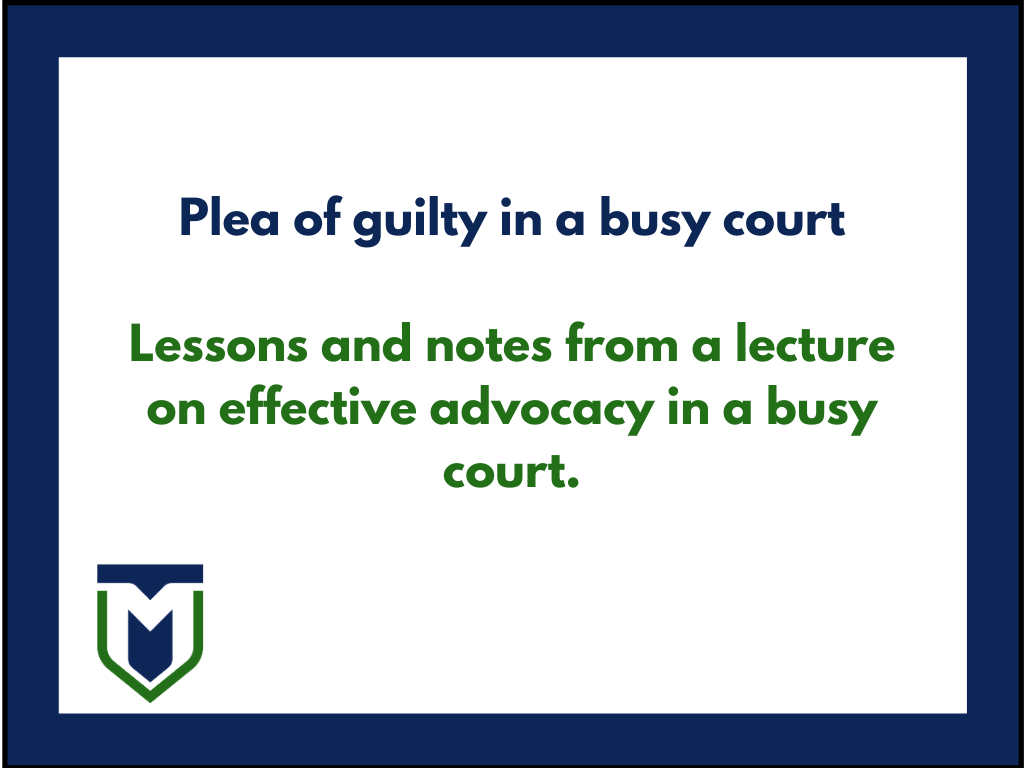Recently I took part in an online lecture by a family court judge who is also a trainer at the advocacy Institute of Australia. The purpose of the course was to offer insights for advocates in how to affectively represent a client in a busy court.
The reality of a criminal lawyer’s work is much of the day-to-day court time is spent in a busy Magistrates Court where the case load is heavy for both the Magistrate and the Prosecution and the lawyer having armfuls of files to get through. It is always painful to see lawyers speaking as if they are being paid by the word. My clients are aware my role is to make the best forensic decision about the materials and arguments. When to push for the result we want, and when to abandon extra arguments and materials that do not assist.
Where the facts, charges, and the law lean towards a fine with conviction as the most likely and appropriate result, I am not going to tell the court about every small details of the client’s childhood but instead focus on reducing the range of the fine based on relevant facts and my client’s capacity to pay. In addition to saving the court time, it is also more likely the Magistrate will listen to and understand my argument, which best benefits my client. There is no point in talking at length for the pleasure of hearing my own voice.
At the advocacy lecture it was suggested that at the start of your submissions you should tell the court what you are seeking and then outline the reasons why. This is “Sign Posting” in the context of mooting, and it applies to advocacy in practice. It looks like this on paper:
Argument: Fine with no conviction recorded:
- Early plea
- Limited capacity to pay a fine
- Minor facts of offending
- Lack of criminal history
When you are on your feet it sounds like this:
“I am seeking a modest fine with no conviction recorded, for four reasons. 1st, the client is entering a plea at the first opportunity; 2nd my client works part time and only makes $500 per week net, 3rd the offending is not very serious for these types of offences and 4th my client has no criminal history. Does your honour require any further submissions?”
The last sentence is an invitation to the court to indicate if they require more information from you, or that they should engage in a discussion about the range if they disagree. This would only be appropriate in some situations; it would be crazy (and possibly negligent) to keep the arguments so short in many cases. Much of what lawyers do when advocating for their client is knowing what information to give the court and how to convey it.
Personally, I like to prepare for every plea as if I am going to have to argue hard for what I am after. It is better to be prepared and not need the arguments then to need them and not have them. I might have 3 or 4 reference letters at the ready and a number of other prepared arguments to “rock and roll” if I need to, but depending on the situation I may only use the top two or three points to get the result I am after in a busy courtroom.
And remember, Magistrates are time poor.
